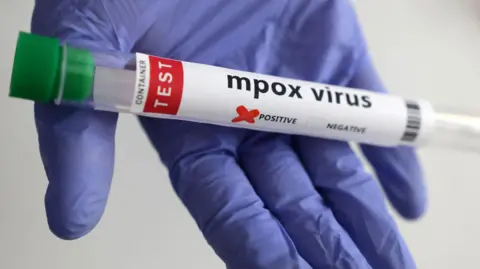Mpox case confirmed with no travel links
 Reuters
ReutersA case of Clade Ib mpox virus has been confirmed in the north-east of England, but no links have been found to other known infected people.
The UK Health Security Agency (UKHSA) said a person was diagnosed with the virus in March and it was working to determine how they were infected.
It added the case had "no reported travel history" and no reported link with previously confirmed cases in the UK.
Dr Gillian Armstrong, the UKSHA's mpox incident director, said the risk to the population remained low but warned the infection could be severe on some patients.
The disease stopped being classified as a high consequence infectious disease (HCID) last month, after a review of criteria including mortality rate and available interventions.
Common symptoms include a skin rash or pus-filled lesions. It can also cause fever, headaches, muscle aches, back pain, low energy and swollen lymph nodes.
Dr Armstrong said the majority of previously infected people had reported close physical contact with someone, such as massages or sex, before developing symptoms.
"Regardless of whether you have travelled or not, it is important to remain alert to the risks," she added.
Anyone who thinks they may have mpox should contact the NHS on 111.
